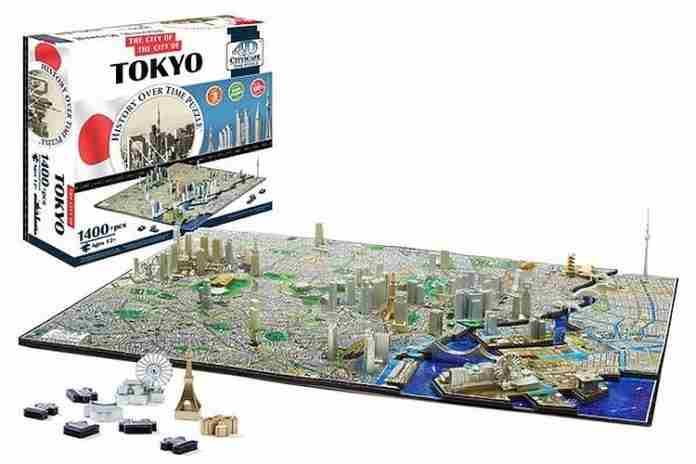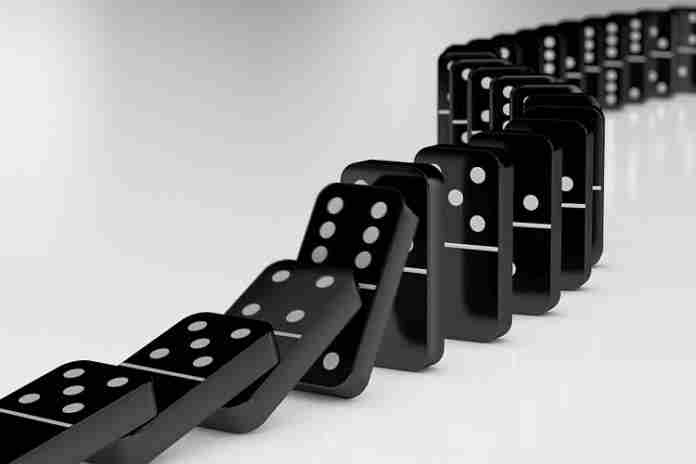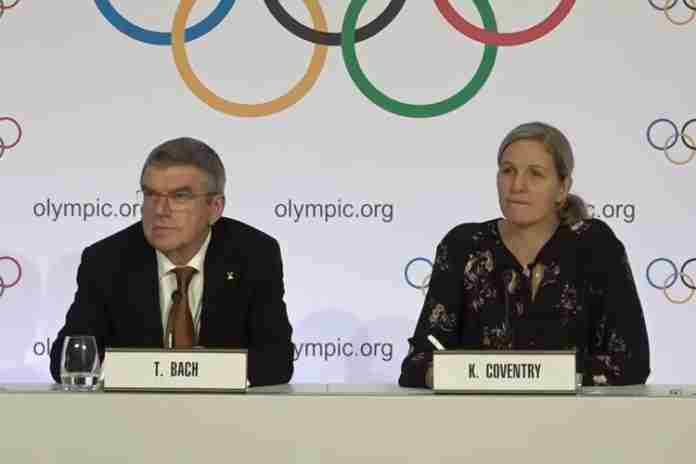The latest news, notes and quotes from the worldwide Five-Ring Circus:
In the aftermath of the joint decision by the International Olympic Committee, the Tokyo 2020 organizing committee and the Japanese government to delay the 2020 Olympic Games into next year, IOC President Thomas Bach held a Wednesday morning teleconference for 53 minutes, with about 400 media on the line and many more receiving a recording.
He gave an extraordinarily detailed, 11-minute account of the process by which the question of what to do about the 2020 Games turned from the question of whether Japan would be a safe place to host the Games in July, to whether anyone could get to Tokyo as the coronavirus exploded worldwide.
Bach was forthcoming and detailed a consultative process in which the information provided by the World Health Organization proved the most compelling and the most concrete.
He was pressed, for most of the 16 questions he was asked by journalists from 10 countries, to explain the timing of the postponement decision, his response to criticism that the IOC was too slow, and one question asking if he had considered resigning. He gave expansive answers to all but the last inquiry, to which his reply was “no.” (More coming on this later today.)
On the more relevant questions about the future planning, he noted:
“This indeed a very challenging question. We have there, already yesterday, following there the agreement with Prime Minister Abe, we have asked there our Coordination Commission together with the Organizing Committee to study this question in detail.
“They have now formed a task force, with what I find a very good name. With a good spirit, the task force calls itself ‘Here We Go.’ So they are now looking into it. This needs consultation, first of all, with the 33 International Federations. There, we will have a telephone conference, I think by tomorrow already, contacts have been made yesterday by telephone. So this is the first step, we have to see with them what the options are.
“And after having consulted with them, we, of course, also have to take into account the sports calendar around the Olympic Games and many, many other issues. So there I think we should come to a solution as soon as possible, but first priority there should be the quality of this decision to really be able to take the input of all the stakeholders into account: the National Olympic Committees, the athletes, the partners, of course the organizing committee is key also in this.”
Bach was further asked about the difficulties inherent in a first-ever delayed Games:
“Now, this is like a huge jigsaw puzzle, putting together. And there, every piece has to fit. If you take out one piece, the whole puzzle is destroyed. Therefore everything has to come together and everything is important.
“This is why I really do not envy the members of this task force in their work, but having seen the proof of the professionalism, the dedication of the organizing committee which made Tokyo the best prepared Olympic city ever and knowing about the professionalism of our Coordination Commission and our Olympic Games department, I’m really confident that we can also master this first-ever challenge. The Games have never been postponed before, we have no blueprint, but we are nevertheless confident that we can put a beautiful jigsaw puzzle together and will then, in the end, have wonderful Olympic Games.”
He also left open the possibility that the Games could be postponed to the spring of 2021:
“The agreement is that we want to organize this Olympic Games, at the latest in summer 2020 [sic], that means that this task force can consider there the broader picture. This is not restricted just to the summer months; all the options are on the table before or including the summer 2021.”
Bach was also asked about whether the IOC’s TOP sponsors whose agreements expire after the 2020 Games – reportedly including General Electric and Proctor & Gamble – will be able to participate in 2021. The answer was yes:
“We have contacted there, in the meantime, all of the sponsors and what we can see is that we have their full support for this decision, and we will now work to implement it. You know, these Games are called the Olympic Games Tokyo 2020. Therefore, for me, it’s a logical consequence that the sponsors of the Olympic Games Tokyo 2020 that they keep their rights, even if these games are organized in ‘21.”
¶
Bach did not discuss costs, and they will be substantial. Wild estimates have already appeared, including 300 billion yen (~$2.7 billion U.S.) from unnamed sources, published in the Nikkei Asian Review.
ESPN published an added-cost estimate of 640.8 billion yen (~$5.7 billion) from Kansai University emeritus professor Katsuhiro Matsumoto.
The truth: no one knows. As is usual in Olympic Games with significant government investment, there is the official budget – still at $12.6 billion U.S. – and lots of estimates from others, which claim the “total cost” of the Games is as much as $30 billion, including programs which have nothing to do with the Games proper, but just happen to take place in the same time frame.
¶
It’s not all confusion, gloom and doom. One athlete with a happy take on the postponement was three-time Olympian and two-time Olympic 100 m hurdles finalist Lolo Jones. Her twitter post:
FINALLY The OLYMPICS OFFICIALLY postponed for a year!! No box of Wheaties for me today. #breakfastofchampions pic.twitter.com/BAtlDUliQE
— Lolo Jones (@lolojones) March 24, 2020
“FINALLY The OLYMPICS OFFICIALLY postponed for a year!! No box of Wheaties for me today. #breakfastofchampions”
and showed her pouring a huge tote bag full of candy into her morning cereal bowl!




























